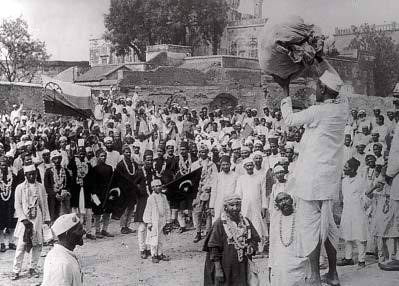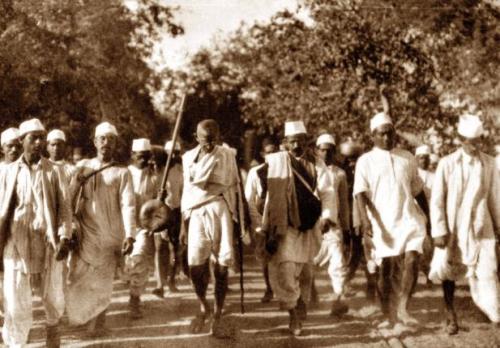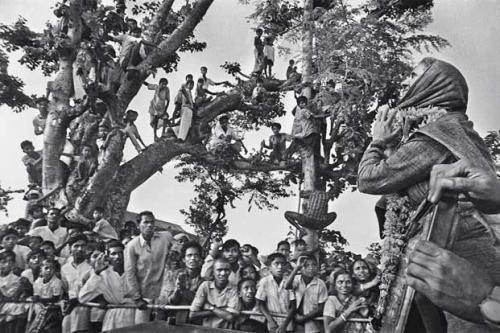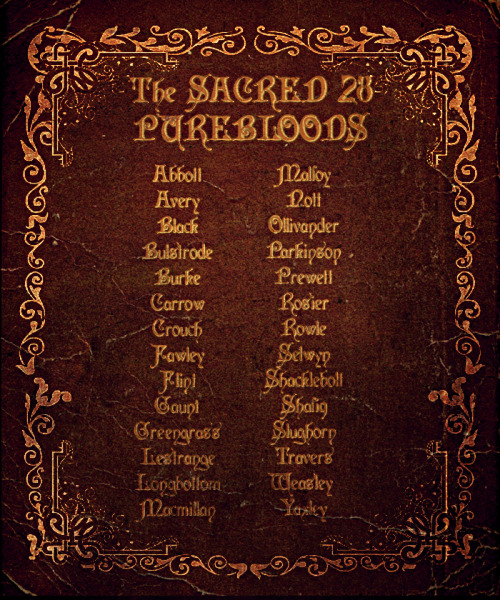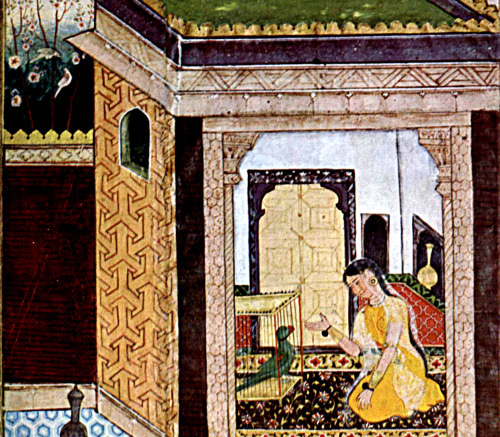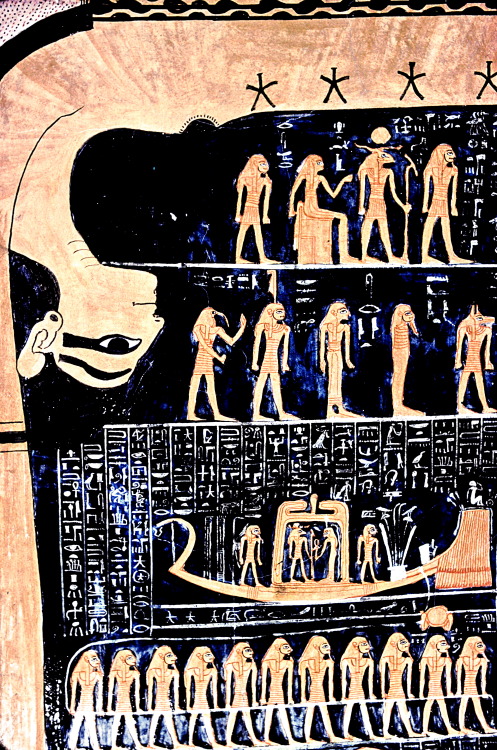#shafiq
Amar baccha! My children, listen, for I have a story to share with you.
In the beginning there was the Kund, the deep wellspring from where the first Ohm of the Universe flowed. Soon other sounds and utterances flowed through, forming brooks of syllables, joined into streams of words, joined into rivers of sentences, joined into seas of stories, joined into oceans of truth.
And each sound and syllable and word, each sentence and story and truth, each little drop carried with it the Power of Creation and Destruction, the Power of Language: together like the ebbs and flows of tidal waves, like drought and floods, like sunshine and rain.
Creation comes from Destruction comes from Creation.
And this Power, the Power of Language, this exists for all those who speak, listen, write, read. For all those that carry Language in their heads and in their hearts. For it is Language that is your birthright and it is Language that is your responsibility.
And Language is not to be restricted, to be hoarded as though it is some precious and rare gold or silver. No, Language is to be shared by all, for it is everyone’s birthright, and everyone’s responsibility, to partake in the ebbs and flows of Creation and Destruction.
You are not the Master of Language, much like you are not the Master of Water or Air. You, all of you, are in Service to Language, much like you are in Service to Water or Air - Powers that create you, Powers that sustain you, Powers that destroy you.
There are some of you that will be entrusted to ensure the safety, sanctity, sanctuary of Language. You will be known as the Compassionate Ones, the Shafiqs, caretakers and custodians of Language and all those that wield it. It is your responsibility to care for the hearts and heads of those you serve, to ensure that their needs and desires are met, that they remain safe and protected and well. It is your responsibility to ensure that Language is shared freely, that Language is served for the greater good, that all hold access to Language and that your Language does not die before it is time.
And oh how its time will threaten to come! For there will be forces that claim to be Masters of Earth and Fire, claim their right to ravage your lands and control your people with ever-changing boundaries and restrictions. Forces that claim to be Masters of Water and Air and destroy all which you build in symbiosis to create that which dominates. Forces that claim to be Masters of Language, their own Language, while denigrating yours as lesser-than, impure, powerless.
And then there will be forces of your own. You claiming responsibility as privilege and using your custodianship as cruelty. You forgetting your own birthright and believing those that say your power can only be accessed by a select few through specific means foreign to you. You letting go of your Language, that which gives you Life, and forgetting all the syllables and stories and truths that it carries.
Destruction comes from Creation comes from Destruction.
The Power will still manifest, still create and destroy, even without your wielding of Language, even without those who speak and listen and write and read. It is Power that has existed before there was Humanity and will exist after there is Humanity, for it is Power that has created the Universe and will destroy the Universe.
Learn to approach Language with respect and responsibility, and you will gain strength, fortitude, prosperity, livelihood. But treat Language as though it is something you can control, restrict, deny, destroy, and you will find that it will control, restrict, deny, and destroy you.
And if you ever find that you are close to the brink of no return, return to the Waters: the oceans, the seas, the rivers, the streams, the brooks. Return to the wellspring, to the Kund, and call out for a new Ohm.
Remember this, baccha, for forgetting is the first step to Destruction without Creation.
[[source:Belinda Meggit
So thepostmodernpottercompendium is hosting this really interesting series on the origins of magic which is now becoming an interesting story in progress. I have been meaning to write this story for a long time, ever since I found this picture in researching the bede, or gypsy boat people of Bangladesh:she’s one of them. I knew she was the face of thedainee that mysteriously guides the Bideshis as soon as I saw her picture, and now I want to write her story.
The line about the kund and the first ohm is from a piece by Minal Hajratwala, about being a kinky queer femme Indian woman. In the piece she plays a lot with language and draws the connection between “cunt” and “kund” - as in “kundalini”. The name of the piece escapes me right now but it was performed in this year’s Yoni Ki Baat in SF.]]
Post link
[[so ever since Shafiq appeared in the Sacred Twenty-Eight list on Pottermore it’s become a growingly-popular last name in fanfic, but there are some uses of Shafiq that kind of make me wince, even if unfairly.
The most jarring ones are the names where Shafiq is paired with a very bog-standard Anglo name - say Bob Shafiq or Jane Shafiq. Because the Potterverse isn’t white-washed enough as it is? I often have to check myself when I see this happen because my own name is an English word (Tiara) and there are Anglo names that travel (Daniel, Sara), but even within my family tree that’s fairly unusual.
The other extreme of this is picking very Arabic names and setting the characters as being from the Middle East. Yes, Shafiq is from Arab origin, but names travel! It’s a common-ish Muslim name, and Islam has a lot of roots outside the Middle East - hell there are a lot more Muslims in Asia than Arabia. A lot of Africa is Muslim, Bosnia and surrounding Central Asia/Eastern Europe esque countries are Muslim, and there’s all the converts and enclaves and intermarriages etc etc etc.
I’ve seen Bangladeshi Shafiqs and Malay Shafiqs (as well as variations on the spelling, such as Shafik and Syafiq) and I’m sure that there are Shafiqs of all sorts of ethnicities. I would love to see a lot more diversity not just in the naming, but also in the origin stories of these characters. How about, say, a Ali Shafiq, Malay wizard from Singapore? Or a Siti Nurain Shafiq from Jakarta? Or an Afroz Shafiq from the East Indian diaspora based in Kenya? Or or or…
So many possibilities for names, let’s look outside the bog standard!]]
Newly crafted headband? Check.
Kajol and rouge? Check.
Skinshade? Check.
Trixie dabbed on a splash of her lucky scent, a mix of vertiver and mint with thin slices of dirigible plum. It had become especially popular in these summer months for its cooling properties and she spent quite a bit of time brewing up bottles for her growing clientele, most of whom she met or would meet tonight.
Though for their bottles she left out the dirigible plum: that was her own little secret.
She placed a couple of those bottles in her bag, along with assorted sample bottles of some experimental mixes and a few other headbands, popped on a pair of red satin bar shoes, did one last mirror check, and made her way to Gatsby’s.
***
Fern had been exaggerating somewhat about her connections to this semi-regular extravaganza. She didn’t know Jay Gatsby - though to be fair, hardly anyone at the party knew him. Some people claimed to know him, but mostly he was myth and legend, perhaps apocryphal, extant only in the oohs and ahhs of the admiring.
She did have a cousin in New York, Ladon Greengrass, and that cousin really did know how to bring people together. Having moved to New York soon after graduating from Hogwarts to visit Gatsby (an old friend, he claims, though Trixie never figured out if that was true), he became the American point of contact for the British wizarding travellers who, like him and his cousin Fern, were piqued by rumours of a weird and possibly dangerous land where thrill-seekers flouted prohibitions and statutes, where magic flowed as freely as prescriptions for firewhiskey, where the exotic were prized and revered.
It was this love for the exotic, as fleeting and fickle as it could be, that earned Trixie’s keep in New York. The fabled Orient had also captured the dreams of the denizens here and Trixie’s fashion and perfumery were much sought after by those that wanted to be especially hip to the Hindoo jive. Her chachas and fupis could barely keep up with the jamdani orders that Trixie transformed into flapper dresses that made their wearers float as light as the fabric flitting on their skin, made to glow by saffron-gold-laced potions adapted from recipes shared by a friend of her grand-mère’s, the resident mambo of her Brooklyn enclave who adopted her as one of her own.
Family.
The mambo was not at the party tonight, nor were the weavers of the jamdani. The rest of Trixie’s family weren’t here either. Not her blood family - they were either long gone or far away, and she was an only child - but her rag-tag chosen family, Fern and Ailene and Florence and Walter, forged far south, almost a lifetime and another world away.
She did try to invite Walter up here, but he kept blowing her off, telling her that he had some ‘business to do first’. Last she heard from Florence she was planning to move to Virginia to pursue further study, but nothing since. And Ailene, sweet powerful secretly-magical Ailene who’d given her the final boost to her move out here - Trixie couldn’t get a hold of her. Walter had said that Ailene was 'in a spot of trouble, but she’ll be OK I think’ - and then nothing.
Trixie tried to not freak herself out, blame herself for something she doesn’t even know has happened. Maybe she’s just busy. Quiet. Nothing’s wrong. Surely
As for Fern? Fuck Fern. Fern had, just one day and out of nowhere, left. Moved her wanderlust on, perhaps, to some other actual exotic part of the world. Maybe somewhere closer to where the jamdani or the saffron-gold had come from. Trixie didn’t know: the only warning she got was when she bumped into Ladon one evening and he made an offhand comment about seeing Fern the day before she left, expecting Trixie to have known about her departure. Fern didn’t even bother to say goodbye, leave any way to get in touch. As if Trixie didn’t matter worth a damn.
Trixie wished she could forget Fern the way Fern had forgot her. She drowned herself in the parties, the perfumery and couture, the liquor-spiked candies and never-spiced-enough roasts - anything to keep her mind away from the fact that Fern had left her hanging.
She still cared.. Cared, even if they’ll never meet again. Parties and potions do not stifle a caring heart, no matter how much she tried.
But anyway. Enough reminiscing. Trixie has work to do.
***
The swarms around Trixie made it hard for her to even get a sip of her lavender champagne, but that wasn’t too much of a problem.
Her new headband had a panel that changed colours according to the current fancies of the wearer. She observed the colours of the people trying on her samples: lots of metallics and golds and silvers - not surprising given the moneyed crowd that tended to frequent Gatsby’s parties. Splashes of reds and pinks, the passionate and lascivious ones, joining the perpetually smiling yellows and oranges in chatting up other headband-wearers and making connections. The occasional purples and jewel tones, many whom Trixie recognised as being similarly gifted in magic as she was, others who spoke of poetry and spirit and learning. The rare rainbows and colour-shifters, ones who loved all the world had to offer, never content with just one path, a constant explorer.
Walter? Strong silver. Florence? A light yellow, or pale orange. Ailene would be a deep amethyst or ruby. Fern, fucking Fern, she would have definitely been a rainbow.
Trixie’s headband shifted colours, currently floating the same shade as her drink. She was collecting names and numbers for preorders - a cool couple of hundreds dollars’s worth, not a bad haul for one night - when she felt a tap on her shoulder.
“Ladon. Oh. Hey.”
“Greetings, dear Trixie. There’s someone I’d like you to meet.”
Trixie had not really spoken to Ladon since hearing the news of Fern’s depature, asdes from the occasional pleasantries when crossing paths at Gatsby’s. She could have asked Ladon more about Fern, where she’d gone and how she’s been, but it’s hard enough to get someone who chat for longer than a few minutes at these parties, let alone the rest of New York. Besides, if Ladon wanted to talk to her he could have made more of an effort to do so.
Trixie took down the last name, closed her notebook, and turned to face Ladon and his companion: a striking, strapping figure, his face hardened with scars and stubble, sporting one of the headbands that Ladon had borrowed from another party-goer. Teal.
“Looks…interesting on you,” said Trixie, stifling a laugh. “You much of an outdoors person?”
The companion’s eyebrows perked with cautious curiosity. "In a sense, yes,“ replied the companion. "How could you tell?”
Trixie explained the magical science of the headband to him: how they were based on the divinatory art of scrying, the panels made out of squares of black mirror coated with a specially brewed solvent giving it its colour-changing properties. Her adoptive mambo had used scrying mirrors often in her witching work to get the lay-of-the-land of the situation at hand, and aura-reading had just caught on as the latest spiritualist craze. Trixie saw an opportunity to combine her skills and cash in - everyone wanted every part of themselves to be pretty and glitzy, why not the soul?
“Ah, the old magic - I haven’t seen this since I helped tracked the African jungle manticore over in Tanzania,” mused the companion. “Indeed, the colours in your ornament remind me of the streelers I occasionally ran into - though perhaps their changes in colour were less metaphysical, more physiological.”
Trixie wasn’t sure what to make of this strange man’s answer. He knew about magic - but that wasn’t necessarily so unusual in New York, even if many didn’t take it all that seriously. Yet he spoke of this magic as though it was a foreign, ancient, long-dead relic, the domain of the yet-to-be-civilized. Something to be studied by the ones more educated.
And what was all this about manticores and streelers?
Ladon stepped in: “I should introduce you two. Trixie, this is Newt Scamander, an old friend visiting from England, he’s a magizoologist. Newt, this is Trixie Shafiq, she’s a close friend of my cousin Fern, you may have been at Hogwarts at the same time. She’s an artisan, mostly with clothing and perfumery and accessories…like that headband you’re fiddling with.”
Hogwarts. That fancy British magic school Fern talked about. So he too was magical.
“Hello Newt, fancy meeting you,” said Trixie. “What’s a magizoologist do?”
“I study animals - magical ones.”
“Ah, explains your manticore business. Fitting name, by the by, Newt. Mind if I call you Figsy?”
“Figsy?”
“Y'know, like Fig Newtons. Damn good treats. You ever had one?”
“Can’t say I have.”
“Let me see if I can get some for you,” said Ladon, waving down a waiter. Soon after the waiter returned with a tray of thick rectangular cookies; as Newt bit into one the cookie crust crumbled, revealing a tart dark paste.
“Hm, not bad,” said Newt after finishing the cookie. Trixie smiled and helped herself to a few off the tray.
“Good. Figsy it is, then.”
“While we’re on the topic of names - yours. Shafiq. Don’t think I’ve heard that before, though it seems a little familiar. But anyway. Very unusual. Exotic.”
Trixie had the very odd sensation of being examined, like one of Florence’s teenage science experiments.
“Fancy yourself a little Oriental, I take it?” continued Newt. “It’s such the rage, even in old Blighty town…”
Trixie winced. Yes, her 'exoticness’ is what allowed her to be successful, but for heaven’s sake, you don’t call people Oriental, that’s for rugs and knick-knacks.
“My name is mine,” said Trixie, biting her inner lip to stop her from yelling. “'Trixie’ was given to me by friends, but Shafiq was from my father - who was from the Subcontinent.”
Newt, oblivious to Trixie’s measured reaction, picked up another Fig Newton and tore off a bite to eat as he prattled on. “Ah, you’re Hindoo? You don’t look at all -”
Trixie yanked Newt’s wrist, the cookie collapsing on the shiny tiled floor. Her skin shifted shades the same way as her headbands, moving from near-alabaster to dark chocolate. Her face rounded a little, her eyebrows fuller, her eyes so wide open they startled Newt and Ladon with their intensity.
“Don’t tell me where you think I am from,” snarled Trixie, gaze locked on Newt. “Everybody does, and they are always wrong.”
Ladon was dumbstruck by Trixie’s attitude, but Newt didn’t seem to be particularly frazzled. Instead, he beamed, like a kid discovering a new toy.
“You’re a Metamorphmagus!”
Trixie’s grip returned and tightened on Newt’s wrist. “A whatnow? Figsy, are you calling me some sort of animal?”
Newt pulled his hands away from Trixie and shook his wrists out. “Oh no, no no no. They’re most definitely people, just a rare sort. Shapeshifters. They can change the way they look. Though the ones I know of tend to opt for less…subtle changes. Purple hair and duck faces, that sort of thing. Just a little fun, y'know.”
“I don’t know about fun, Figsy - I know about survival.” Trixie could have shapeshifted into dynamite based on mood alone. “My parents taught me this to make sure no one could hurt me for thinking I was an alien. Things weren’t so good for our kind. Still aren’t.”
“I don’t understand. Surely shapeshifting in public would get you even more persecution from the Muggles?”
Muggles? The word seemed familiar, and yet…
“He means people without magic, Trixie,” said Ladon. “You know, people not like us. Like the people who bought your headbands thinking it was just some silly fun.”
Trixie’s loud cackle held a hint of bitterness. “Honey. It’s not your so-called Muggles I have to worry about. You go to New Orleans - hell, you leave this party and go to the real New York, and you’ll see magic out in the open. Everyone knows and nobody cares. Where do you think this spiritualism jive all came from? No, you know who I’m more worried about? White folk.”
Trixie’s features shifted again, now more closely resembling one of the other flapper girls at this party - bright skin, cropped blonde hair, a dash of freckles. “My people are getting locked up for being the wrong color. My father’s people - they didn’t know whatwe are, White or Colored or Turkish or Malayan or Italian or what. One time the big lawmakers said we were White, which means we should be OK.”
“But then people realised, people like my father - we’re not exactly light-skinned. So we started getting in trouble.” Trixie’s features shifted back to the version that surprised Newt and Ladon: her usual, non-Magic-created self. “My mother’s people, they would never be OK. They were Colored, the bad kind of Colored. Means you could get hauled up just for existing sometimes. They used to call themselves Hindoo to try and protect themselves, but then the White folk started hating Hindoos and now we’re all in trouble.”
Trixie suddenly had a flash of Fern: she wasn’t exactly White either. But she was British, from a land where the magical ones lived apart from these Muggles. Do they treat their Colored folk the same way there? Was that why she disappeared? Walter, Ailene, Florence…? Is that why…?
“You could be arrested just for being not White?” said Newt in disbelief. “What a barbaric lot these Muggles are!”
“Oh don’t be too sure that it was all Muggle, Figsy boy. As I said, everyone knows about magic. Some of those White people causing trouble for us were also magical. Catch you in a corner, chant some words - boom! Off a tree you hang, upside down, don’t even need a rope.”
“Hang off…wait, how did you survive?"
"We use glamour. This Metamorph thing you said it was. Both my parents knew what to do. They taught me glamour magic, taught me how to transform just enough so that I could blend in just enough to get by. Or stick out a little if the place was right. Like here - being a little unusual helps my business. But not too unusual or else they think I’m one of the waitstaff - or worse, that I cheated my way in. Look around, boys - you see anyone darker than these cookies round here?”
Ladon and Newt saw mostly people that looked just like them: White, European, not likely to have their ethnicity questioned by the authorities. They wondered if some of them were like Trixie, shifting themselves to safety.
But what if you weren’t born a Metamorphmagus - well, as they know it, Metamorphmagi are bornnotmade - but Trixie seemed to imply that this 'glamour’ business could be taught - there didn’t seem to be that many magical Colored people that they knew - were they all -
“You see, boys, when you have to walk through multiple worlds all the time, when you’re never one nor the other, when what other people think you are is more important than what you think you are - you don’t have to be some Metamorphwatsit. Or even magical like us.”
Trixie looked out at the crowd in front of them, a mess of magic and glitz and illusions. Everyone dolled and suited up to present as fine society. Everyone, in their own way, using glamour magic.
“If you want to survive? You knew how to shapeshift.”
[[source: Heather Romney
some ideas from other blogs have been linked where relevant.
SO VERY SORRY for the long delay. I’ve been busy with a show, and then MH370 has been sucking so much of my energy. I’m not entirely content with how it ends, mostly because there’s one last small thing I want to make happen but don’t know how. But I’ve been working on this for ages and wanted to get it out there.
According to Bengali Harlem the South Asian immigrants were designated White for a while, and there had been many other POC that assumed themselves as “Hindoo” to gain the same racial protections, but it didn’t last very long.]]
Post link
thepostmodernpottercompendium:
The Sacred Twenty Eight: The Noble and Most Ancient Houses of Shafiq and Shacklebolt (2/?)
Pictures, left to right: Jallianwala Bagh Massacre 1919, Non Cooperation Movement 1920-21, Dandi Salt March 1930, Bengal Famine 1943, Trains during the Partition 1947, Indhira Gandhi visits Bangladeshi refugee camps in Bengal 1971.
He does not understand, when he is five, why his mother is weeping for people in a far away place with a strange name which is not home.
When he asks her, she only cries harder, and his father grips him roughly by his shoulder and pushes him away, admonishing him for troubling his mother. Someday, his father says, you will understand.
(He does not tell them, after asking his ayah, that he still does not understand why they care about wicked people who think they can get away with murdering innocent people. Why should they care? They are not theirpeople.)
He does not understand, two years later, when they return from the Halloween ball at the Ministry of Magic; the wrath of Kaliherself writ large upon his mother’s countenance (though she has long since given up her old family gods) and his father’s eyes shining with the same light of battle which must have once shone in their forefathers’ eyes as they swept out of the Hindu Khush following Muhammad of Gor.
Shafiqs are landowners and caretakers, yes, says his father, we grow and we create and we heal the land, but there is also anger in our hearts and when the time comes, we are warriors as well and all men quake when a Shafiq raises his arms to go to war.
(He tells his father he is not a Shafiq then, because there is no anger in his heart and his father only laughs and ruffles his hair and tells him that when he is older, the anger will burn in his heart too.
It is the last time, for a very long time, he hears his father laugh so openly.)
He does not understand, nearly twenty years later, why his mother both laughs and cries at the letter his father sends them from the old country, complaining about the damn bilatisthinking they’re clever by refusing to put us in prison. This is no laughing matter, being put in prison. It is wrongto break the law.
His mother silently hands him a book by a man called Olaudah Equiano and tells him that sometimes men make bad laws and it is for them, the ones who take care of their people, to fight those laws.
(He begins to understand, a few years later, when he realizes that his colleagues at the Ministry care more about Grindelwald’s war and its ill effects on England, not the millions starving back home, or the boats burning to keep the Germans (or the Japanese) from freeing his people; when they talk of oppression by mugglesand he wonders what the non magical folk have ever done to them that can be compared to what they have done to his people - then he understands, they do not look beyond their navels, so they exaggerate their pain, these pampered dandies.)
He does not understand why his father is grim-faced and his mother cries and cries and cries when Clement Attlee finally gives their countries Independence and the bilatisleave. It is a time for celebration - they have finally won their war. People die all the time. Let them die; they are not their own, they are mugglesthey do not have magic.
His mother goes into hysterics when he says this and his father fixes him with such a stare, he nearly wets himself.
Are you a Shafiq? His father asks him, are you my son or a son of a pig? A fool that you spew such nonsense? Are you blind? Have the bilatis turned your brain to porridge?
(He understands, a little, when as he watches his mother’s body burn on the funeral pyre, the tears begin to flow. Death is not easy to see. His father gruffly tells him to be a man and stalks away. Proud and tall as always.)
He begins to understand even more, when he meets his Anglo-Indian wife’s family and he listens to them drawling away about how the homeland is dirtyandstinky and his people are backward.They are your people, your forefathers he wants to yell, but smiles apologetically as his wife squeezes his hand sympathetically underneath the table.
He understands better, when he reads Macaulay’s Minute on Education (1835) and he reads these words:
We must at present do our best to form a class who may be interpreters between us and the millions whom we govern; a class of persons, Indian in blood and colour, but English in taste, in opinions, in morals, and in intellect.
He finally understands properly, twenty three years later, why his mother wept when their people, once united by common cause against their oppressors, turn on each other and commit genocide over divisions created by those very same oppressors they fought to drive away. He understands, when not a murmur is heard in the Ministry of help to be sent to them - when British newspapers are silent about sending troops to help clear up the mess they made in the first place.
But by then it is too late to teach his son what it means to be a Shafiq; to be rich and yet have anger burn in your heart.
So he teaches his grandson instead. These are only stories to them both, but he sees the fire of anger in his grandson’s eyes when he teaches him the history they do not teach them at Hogwarts. Of how the men of this country went to their homeland and stole from them in the greatest sanctioned robbery in the history of the world - 2.5 billion pounds (probably a lot more) stolen to never be returned. Of how, for two hundred years, they were taught that their ways were inferior and foolish, based on superstition not science. Of how they burnt their boats and stole the very souls and identities of people by turning them British, by turning them against their own culture (like your father, he says regretfully).
Of how these very men turned their people against each other: one religion against each other, countries arbitrarily divided along the lines of religion leading to one of the largest massacres in history. Of how ten million of their people were displaced overnight, in a war caused by the same arbitrary division of nations along the line of religion and politicking - this time for culture and language, because truly what did people in Dhaka have in common with people in Islamabad besides a vague commonality the bilatisdecided superceded all other commonalities? But now ten million people fit neither here nor there - they were not Bengali because they were muslims but they were not Pakistanis either (how could they be, those northeners were so different.) Ten million people with no identity, always to live unsure of themselves. This was the story of their people; magical or not, allof them were theirs.
And then many years later, his eyes are misty with tears as he watches his seventeen year old great grandson snap his wand and declare that he will not live as a bilatiwizard among a people with no conscience and no guilt for their cruelty. He goes to muggleuniversity instead, and then returns to his homeland to make a difference by working in a muggleNGO, practicing their old magic. The magic of their forefathers. And nobody serves him notice for using magic in the presence of muggles.
It is a start, he supposes, and then imagines his father would be proud. The anger has burnt in his heart and he has passed the flame of anger on. They will be caretakers, they will be warriors.
There will always be a Shafiq as long as they remember.
[Pic sources will be added later. Many thanks to notyourexrotic for helping with various bits of information and shaping this story (also for their incredible project shafiq28 which, I’ll be honest, shaped the headcanons for this one in a hugeway). I never liked the whole Statute of Secrecy biz given its ramifications when you apply them to other countries outside of the Euramerican region - its similarities with the whole divide and rule policy which governed Brit colonial policies when they were leaving countries are far too close for comfort.]
[[re-reblogging for this as there’s been an update to the original.]]
Post link
thepostmodernpottercompendium:
The Sacred Twenty Eight: the Most Ancient and Noble Houses of Shafiq and Shacklebolt. (Part ¼)
When they first saw the list, they laughed.
When they asked them why they laughed, they only shook their heads and did not answer. How could these people understand? To them the world was simple. There were three kinds of people: the pure, the sullied and the impure. The ones without wands were aliens, a different kind of species. Sub-human.
They knew better.
They had built civilizations. They were there when the Babylonians planted their trees in the Hanging Gardens. They were there when they laid the first stones in the pyramids. They were there when the Mesopotamians wrote their first histories and humans first recorded time. They were there at the founding of the first cities of the earth. They were there when the first men ploughed the field and built their homes. They were there at the breaking of the continents. They were there, among the first men of the Earth.
And while these savages were still scrounging around in the earth, speaking a primitive language of grunts and growls, they had been there reading the stars and considering the very nature of being and existence. These savages who were only learning how to wield the plough when their people were at the very height of their civilizations. These savages who were still shepherds and the like during the waning of their peoples.
Oh yes, they knew better.
They understood what differencemeant. They saw it in the eyes of the pale-faced muggles who eyed them on the streets. They heard it in the speeches of politicians who called them dirtyandoilyandcorrupt and claimed that their blood would soon flow freely on the roads of England if they did not go back home. They felt it in each death and in each drop of blood shed to fuel the Empire.
These people mourned over the tragic nature of Grindelwald’s short lived rule and conveniently forgot other horrific numbers. Eleven million, ripped from their homeland and shipped across the sea for the fat to get fatter. Three million dead, so that Britain could eat and fight their war on full bellies. 200 years of pure destruction.
But they would never forget. These were their people. It did not matter if the blood in their veins was magical or not. These were more their people than these savages waving their wands, who thought that this wand waving magic was the only form of magic worth knowing. Who thought that those who did not wave wands were without magic. But in truth, where they came from, magic was a part of the lives of everyone from the highest king to the lowliest slave and dalit. Where they came from, everyone lived their lives by the signs they read in their stars. Medicine and magic were one and the same, for healers were witches and witches were healers and every village had a witch-healer. They all came together to ward their homes and lands against evil spirits and evil eyes. They all sang the songs of mysticism together, deep spells to work magic that the non magical folk called miraculous. Magic worked for the sake of magic, for enjoyment and pleasure. Deep magic which called for time and patience and acuteness of mind to thread together all the spells in a pattern as complicated as life itself.
And these people, these wand-wavers now deemed them worthy enough to join their little club of those pure enough to be elevated above the rest of magical Britain.
How noble!
How gracious!
How patronizing! - but they did not say this aloud though they thought it many times.
No. The Shafiqs and Shacklebolts only smiled, and did not bother to tell these people that being a Shafiq and Shacklebolt was not a matter of a tightly knotted family tree, but a question of beingness. Nor did they tell them that this list was young and they were old, old as the very bones of the earth: they did not need this list to tell them their worth or explain who they were. They knew, even if these foolish children did not.
They smiled and they did not speak, for centuries had taught them this at least:
Never cross the white man
And he will not hurt you.[Picture sources: Pureblood 28 List by thestagpatronus,detail from the Ishtar Gate in Babylon,Girl with a parrot from the Tutinama manuscript,Igbo Maiden Spirit Mask,Nabta Playa,the Goddess Nut,Astrolabe, The assembled animals complain to the raven of their mistreatment at the hands of man by Miskin (or a student) c. 1595-1600, Leopard, kingdom of Benin, Nigeria, ivory with copper inlay, 47 cm high, late 19th century.
In case you’re wondering why there are pics of Igbo/Benin artifacts alongside Egyptian/North Africans one, I have a well planned out migration route for the Shacklebolts and I’m not just saying stuff because I can’t be bothered to pull out culturally specific works of art. Ditto Shafiqs.]
[[As far as my Shafiqverse is concerned, this is canon.
I’m kind of busy the next couple of weeks, but I’ll reblog more from this series - I’ve contributed a bit to this story and it looks to be more amazing than I’d anticipated.]]
Post link


![[[previously: one, two]] Newly crafted headband? Check. Kajol and rouge? Check. Skinshade? Check. Tr [[previously: one, two]] Newly crafted headband? Check. Kajol and rouge? Check. Skinshade? Check. Tr](https://64.media.tumblr.com/7e0f00aa5d27ee3eadb86a092ae071a2/tumblr_n0numaIt1R1qgdlmfo1_500.jpg)

